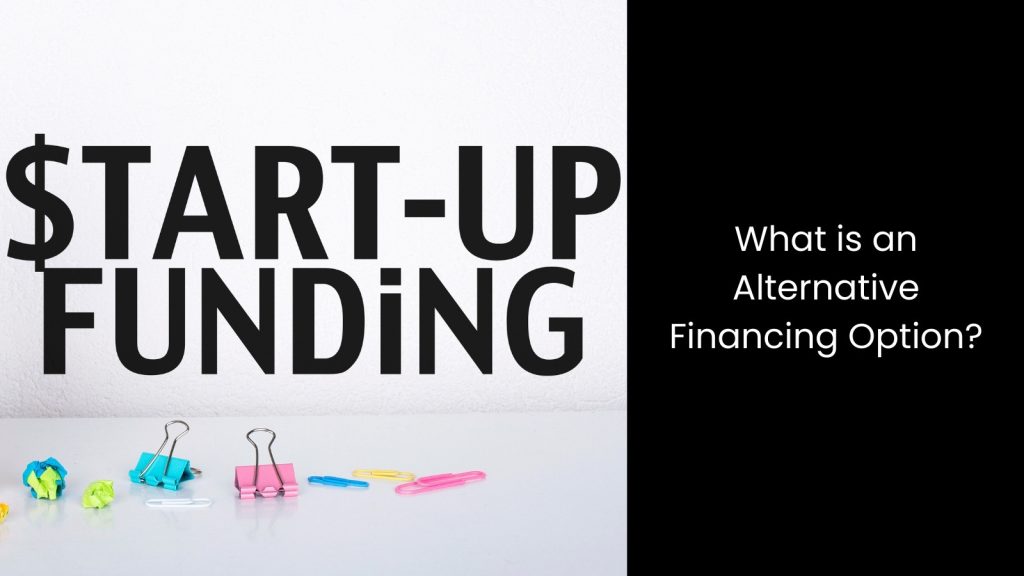If you are about to initiate an enterprise or just started one, you must be aware that startups in 2025 cannot afford to rely on just one funding source! Traditional bank loans and venture capital are harder to secure. This leaves many founders scrambling for options. But just as every dark cloud has a silver lining, there is good news. The ‘Alternative Financing’ is reshaping how businesses get the money they need to grow. With so many options out there, startups now have flexible ways to raise capital without giving up control. The days of endless investor pitches and rigid loan requirements are fading. With smarter funding solutions, businesses can move faster, scale efficiently, and stay ahead of the competition.
In this article, we will learn about the world of alternative financing options for startups and see how new companies can turn financial roadblocks into real opportunities.
This guide will discover
What is an Alternative Financing Option?

- If we look into the definition of alternative financing options for startups, these are non-traditional funding sources that help new businesses secure capital without relying solely on banks or venture capital firms.
- Especially in today’s world, startups need alternatives as traditional financing usually comes with strict credit requirements, lengthy approval processes, or demands for collateral that many early-stage businesses cannot meet. Relying on one financial stream can trap startups in rigid terms, high interest rates, or equity dilution and will make it harder to grow freely.
- This is when the limited cash flow, unpredictable revenue, and investor hesitations create roadblocks that stop many startups from securing funds. Alternative financing options give startups flexible ways to raise money through various creative ways.
- These options allow founders to tailor funding methods to their business needs without giving up too much control. Instead of waiting months for a bank’s decision, startups can tap into funding sources that work faster and align with their growth strategies.
What is the Best Financing Option for a Startup? Top Alternative Financing Options

Revenue-Based Financing (RBF)
One of the most popular ways that startups secure funding without losing ownership involves revenue-based financing (RBF). What is it?
The latter is a flexible alternative financing option for startups, and this method allows businesses to receive capital upfront in exchange for a percentage of future revenue until they repay the agreed amount.
Unlike traditional loans that demand fixed monthly payments, RBF adjusts to a startup’s earnings. This quality makes it easier to manage cash flow during slow periods. Instead of selling equity and giving up control, founders keep full ownership while still accessing the funds they need to grow. Investors take on the risk by betting on a startup’s future sales, which means companies with strong revenue potential stand a better chance of securing this funding.
For example, SaaS businesses, e-commerce brands, and subscription-based companies mostly use RBF since they generate steady revenue streams. Startups that struggle with bank loan approvals or prefer to avoid interest-heavy debt see RBF as a smarter alternative.
As the business grows and generates more revenue, payments adjust accordingly, preventing financial strain. Founders no longer need to wait months for investor deals or get stuck in long-term loan agreements. Instead, they gain quick access to funds, allowing them to focus on scaling operations, expanding marketing efforts, or increasing inventory.
Crowdfunding
This is one path most startups turn their heads on as they search for alternative financing options. Yes, crowdfunding!
This is a way to raise money from a large group of people, usually through online platforms. Instead of relying on one big investor or taking out a loan, startups pitch their ideas to the public, hoping individuals will back their vision with small contributions. This funding method works best for early-stage businesses or those with a product ready to launch, especially if they can build excitement around what they are offering.
Startups post campaigns on sites like Kickstarter, Indiegogo, or GoFundMe, setting a funding goal and offering rewards, pre-orders, or even equity in exchange for support. If people believe in the idea, they chip in, helping the business raise the cash it needs to move forward.
Its uniqueness is that crowdfunding does more than just bring in money. But it also creates a loyal customer base before the product even hits the market. Startups get real-time feedback, proof of demand, and a chance to refine their offerings based on what backers say.
Angel Investors
As its name indicates, this method may feel like meeting a guardian angel for some startups! Why do we say that?
These angel investors step in when businesses need funding at the earliest stages. These high-net-worth individuals put their own money into promising startups, usually in exchange for equity or convertible debt. Unlike traditional banks that demand a strong credit history or venture capitalists who wait for businesses to gain traction, angel investors take risks on fresh ideas, betting on their potential to succeed.
Many of these investors come from business backgrounds, which means they bring more than just money. For example, they offer mentorship, industry connections, and expert advice. Startups that struggle to get funding through other means see angel investment as a way to secure capital while also gaining valuable guidance.
Entrepreneurs who know how to pitch their vision and show growth potential stand a higher chance of catching an investor’s attention. Since angels invest their own funds, they move faster than traditional institutions, making this an attractive option for startups that need quick cash to scale operations or launch a product. Convertible debt also allows founders to delay giving up equity until a later stage, which helps them negotiate better terms once the business gains value.
Grants & Competitions
Today, most governments and authorities understand the importance of giving a little push to upcoming companies. This is why grants and startup competitions have become popular alternative financing options for startups.
Unlike loans or equity investments, grants provide non-dilutive funding, meaning startups receive money without giving up ownership or worrying about repayments. Governments, corporations, and foundations offer these funds to encourage innovation, economic growth, and technological advancements.
Many startups, especially those working on solutions in sustainability, healthcare, or tech, apply for these grants to fuel their growth without financial pressure. Startup competitions also open doors for fresh businesses to showcase their ideas and win funding, mentorship, and networking opportunities. These competitions tend to attract investors and industry experts who might become long-term supporters of the business.
In traditional funding, startups must meet strict credit or revenue requirements. But this is different when it comes to grants and competitions, as they focus more on the potential impact and feasibility of an idea. Winning a grant or a competition not only provides financial relief but also boosts credibility, making it easier to secure future investments.
Startups that master the art of pitching their vision compellingly stand a higher chance of grabbing these opportunities. While the application process may take time, the benefits far outweigh the effort.
Venture Debt
This method is all about receiving financial support without giving up control. This indicates that venture debt allows startups to secure loans from specialised lenders while keeping their equity intact.
This differs from traditional bank loans that require strong cash flow and assets. Venture debt focuses on startups backed by venture capital, making it a great option for businesses that need extra funding to scale operations, extend their runway, or bridge the gap between funding rounds.
Instead of relying solely on investors for capital, startups use venture debt to fuel growth without immediately diluting ownership. Lenders assess factors like the company’s potential, existing funding, and revenue forecasts before approving loans. This financing works well for startups that expect strong future earnings but want to avoid selling more shares too early.
Since venture debt sits alongside venture capital, it gives founders the flexibility to make strategic moves without unnecessary pressure. Repayments usually happen over time, allowing businesses to use funds efficiently while focusing on expansion. While interest rates and repayment terms vary, startups that manage their finances well can use venture debt to gain a competitive edge.
This funding option becomes a smart tool for businesses looking to balance risk and reward while maintaining control over their future.
Initial Coin Offerings (ICOs) & Security Token Offerings (STOs)
When it comes to this mechanism, startups tap into the digital world to raise capital through Initial Coin Offerings and Security Token Offerings using blockchain technology to issue digital tokens.
ICOs work like crowdfunding, where investors buy tokens that grant access to a startup’s platform, services, or products. STOs take it a step further by offering tokens backed by real assets, giving investors ownership rights or a share in the company’s profits.
Far apart from traditional funding, this option allows startups to connect with a global pool of investors without relying on banks or venture capitalists. Blockchain ensures transparency, security, and fast transactions, making it an attractive choice for tech-driven businesses. Investors see potential in these tokens as their value may grow alongside the startup’s success.
With the right strategy, startups can raise large sums while keeping control.
Streamlining the Financial Documentation Process to Express Transparency Using Modern Tools

Why struggle with outdated documentation methods when AI-powered financial assistance systems can do the heavy lifting? These modern tools streamline financing, reduce errors, and make compliance a breeze. Businesses that embrace AI power through an industry pioneer not only boost efficiency but also gain a competitive edge. So, isn’t it time to make financial transparency effortless? What do you think?

